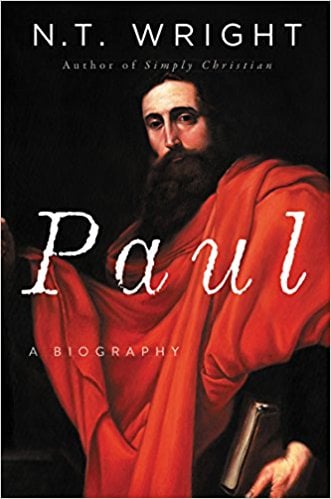Q. Suppose you were to have been able to interview Peter in writing this biography of Paul. What do you think Peter’s overall assessment would have been of Paul and his life and ministry? Do you think perhaps Peter’s speech in Acts 15 and 1 Peter may give us some clues? Was 1 Peter mainly written to Diaspora Jewish converts, resident aliens in what we call Turkey, or was he addressing the Gentiles that he should have been leaving to Paul’s charge?
A. I have no settled opinion about where 1 Peter was written to or why. I suspect that the ‘Jew/Gentile’ division of labour mentioned in Galatians 2 was a temporary holding job which hadn’t really been thought through very far and wouldn’t be easy to implement with any long-term accuracy. I think Peter’s overall assessment of Paul would have been rather like the line in 2 Peter 3, said no doubt with a raised eyebrow and a sense of ‘read between the lines’: Yes, he’s a beloved brother, but some of what he says and does get misunderstood and people go off in the wrong direction as a result’ . . .
Q. One of your main emphases in this book is that Paul was absolutely not out to start a new religion (much less a new political movement), but rather to proclaim that in Christ God was fulfilling his old promises and prophecies made to God’s people and at the same time fulfill their mission to be a light to the nations. The Good News was indeed for Jews first, but also for Gentiles. And yet, so many historians have said since that time that whatever Paul’s intent was, the effect of his work was a parting of the ways with Judaism, and in effect a new world religion, one that, unlike Judaism believed in constant attempts to convert the rest of the world through a proclamation about Jesus, including converting Jews to the following of Jesus. How does one get the balance right in assessing these matters now that we have 2,000 years of hindsight on the matter?
A. This is really tough just now because of all sorts of mutually conflicting agendas, not least in American scholarly circles just now; so it’s hard to say much wise without (like Paul himself!) giving the wrong impression. Paul worked hard throughout his public career to hold together the followers of Jesus the Messiah in a single family. Any and all Jews of the period who knew anything about the wide variety of messianic speculations and expectations would know that, whatever one said about this or that character as a potential Messiah or new king (ranging from Herod to bar-Kochba!), if you say ‘this person is Messiah’ that means ‘this is where Israel’s God is fulfilling his ancient promises and reforming his people’. That is a deeply and typically Jewish thing to say, and – as with Qumran, or with the Mishnah – it is polemical: it means, THIS is where Israel’s destiny is being fulfilled, and if you don’t join in you are ruling yourself out. That, to repeat, is not a ‘Christian’ reaction to something called ‘Judaism’. What we have to remind ourselves again and again is that this isn’t about ‘comparative religion’, though that deep distortion is what modern American academics have often wished it was about. That category would make no sense whatever in the first century. What it’s about is messianic eschatology.













